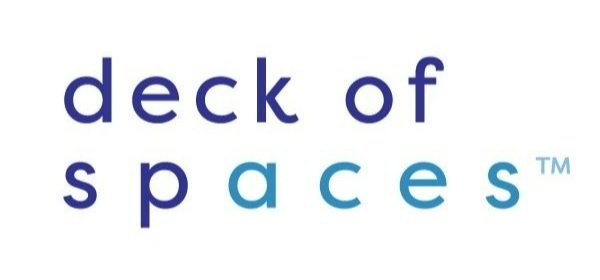A Research-Based Design Framework for Equity, Inclusion and Student Success
The Deck of Spaces™ is aligned with the established learning framework Universal Design for Learning (UDL). The deck is intended to be tactile, user-friendly, and supportive of conversation between the worlds of spatial planning and education.
Educational Visioning: The Deck of Spaces™ can be used in a variety of formats to engage with the full gamut of stakeholders. Its methods of use are constantly being expanded by each new user group. It awakens users to ideas not previously considered, making it an ideal tool for visioning. Users guide their own discovery with the expansive set of ideas - it's not a prescribed visioning tool aimed at a certain outcome. Prioritized ideas are easy to pull from the deck and collect as a set of guiding principles. Card categories include student experience, educator experience, and school culture, helping to ensure that all stakeholder perspectives have multiple means to find expression for their perspective.
Design for Educational Facilities: the cards are each comprised of an idea, or set of ideas - a narrative description on one side and photos of application ideas on the other. While the images are not the sole solution for each idea, they're starter ideas, giving the design team and end users the spring board needed to express goals for the educational facility design.
How was the Deck of Spaces™ created?
For years, UDL has been practiced around the globe, yet it has been silent on the significant impacts that space design can have on learning. In 2016, Multistudio (the evolution of Gould Evans) began a partnership with the UDL Implementation and Research Network (UDL-IRN) to remedy this gap.
Many educators continually attempt to teach to the average student, and as a result, students are getting lost through the cracks only to become disenfranchised by the education system. It is urgent that all educators recognize the different types of learning barriers experienced among the diversity of learners at all levels of education, especially those in underserved communities. A highly adaptive model for personalized learning is critical to reach the multiple needs of these learners, delivered by well-trained educators. However, space is often overlooked for the value it plays in creating positive and effective learning environments.
After numerous conversations with clients, colleagues, and educators, David Reid, principal at Multistudio and James D. Basham, Ph.D., a Professor in the Department of Special Education at the University of Kansas, realized the need to articulate a set of guidelines for UDL-focused space design. Together, they designed the Deck of Spaces™, melding space planning and design with the principles of UDL.
David Reid, AIA, NCARB, LEED AP
Education Design Principal at Multistudio
What is Universal Design for Learning?
Originating at Harvard University 20 years ago by neuroscientists and neuropsychologists, Universal Design for Learning (UDL) is a robust personalized learning model intended to increase access to learning by reducing physical, cognitive, intellectual, and organizational barriers to learning. The model accomplishes this via a curriculum and approach that provides:
Multiple means of representation to give learners various ways of acquiring information and knowledge,
Multiple means of expression to provide learners alternatives for demonstrating what they know, and
Multiple means of engagement to tap into learners' interests, challenge them appropriately, and motivate them to learn.


